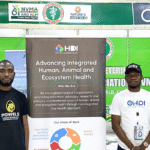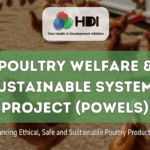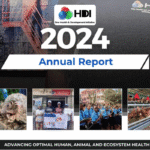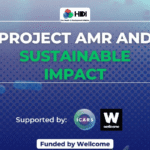
One Health and Development Initiative is happy to announce the inception of a new project – called Project SCHISTO which aims to promote integrated One Health research and intervention on Schistosomiasis in South-West Nigeria. The first phase of this project focused on implementing One Health research and advocacy, is supported by the Conservation, Food and Health Foundation – a United States-based Foundation that builds the capacity of organizations and coalitions with grants that support research or improve the learning and generation of local solutions to complex problems. In implementing this project, we will be working with project partners at the Parasitology Research Unit of the University of Ibadan, Nigeria.
Nigeria has the largest burden of schistosomiasis in the world with an estimated 29 million people affected by the disease and over 100 million people (especially women and children) still at risk of infection. Though there have been several efforts by government institutions and civil society organizations in the country to treat, control, and prevent the disease, these have not yet resulted in a marked decrease in the disease’s prevalence. Also, the interventions have been more focused in the northern and south-eastern regions of Nigeria, leaving the south-western region seemingly largely marginalized from such interventions. It is therefore of little surprise and of great concern that the south-western region has been confirmed to be a hyper-endemic zone for schistosomiasis and is the region with the highest prevalence of the disease in the country.
In our organizational efforts to plan and initiate interventions to control and prevent schistosomiasis in southwest Nigeria, it was discovered that there is little to no comprehensive, coordinated data on the disease’s distribution and prevalence. At the national and state levels, there is little to no coordinated report or surveillance on the disease since the last country report on NTDs (schistosomiasis included) was conducted in 2015. With these problems of insufficient data, we cannot accurately identify specific schistosomiasis-endemic communities and the accompanying risk factors that drive the prevalence of the disease. And this makes it difficult to design and develop direct, effective, and accurate strategic interventions that can effectively control and prevent the diseases, and eventually reduce prevalence.
Furthermore, where efforts are being made to address schistosomiasis, the focus is often only on the implementation of mass drug administration (MDA). However, it is evident that MDA is not protecting people from re-infection and cannot holistically address the impact and influence of animal reservoirs, insect vectors and zoonotic diseases, and poor environmental and sanitation outcomes. In fact, in 2020, WHO updated the previously recommended intervention strategy of Mass Drug Administration to a more holistic approach that should include “preventive chemotherapy, innovative and intensified disease management, vector control, and pesticide management, safe drinking-water, WASH services, and education, and zoonotic disease management”.
Therefore, over the next year, OHDI will implement the first phase of the Project SCHISTO to determine the current distribution of schistosomiasis in southwest Nigeria, identify key endemic communities and determine peculiar environmental health, animal health, and sociocultural risk factors that drive the prevalence of schistosomiasis. This will be supported by advocacy and engagement with policymakers and target communities on results findings.
We expect that this comprehensive evidence-based research and advocacy on schistosomiasis in southwest Nigeria will accurately inform the development and deployment of strategic interventions that will be specific, community-relevant, holistic, and effective in the treatment, control, and prevention of the disease. Also, the report produced would form a knowledge base for our organization and other organizations or institutions that are conducting (or planning) interventions in combating schistosomiasis in the region, and will also be utilized as an advocacy tool to engage policymakers to improve resources allocations to schistosomiasis and even other Neglected Tropical Diseases (NTDs).











